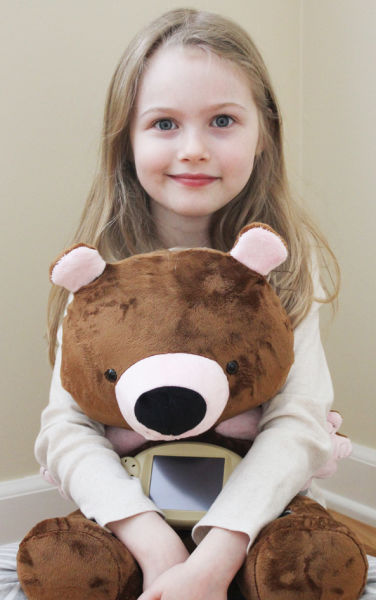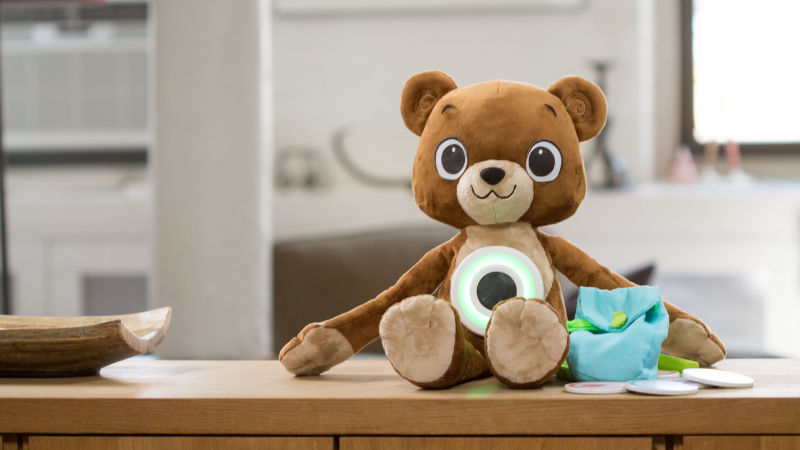For Caylin Proffitt, who was diagnosed with Type 1 diabetes at the age of five, healthy food choices aren't really -- well -- a matter of choice. But it's not just children with diabetes who should avoid too many sugary treats.
Several years ago, Caylin's mother Kristina learned about an interactive toy bear called "Jerry." Children can keep Jerry in "optimal health" by tracking his pretend blood sugar levels and feeding him healthy food cards, which can be swiped across the bear's mouth.

This week, Sproutel, the company behind Jerry the Bear, released a version of the toy targeted to all children ages five to nine. While the original bear aimed to help kids with diabetes, the new bear is focused on general wellness, nutrition and "mindful" eating. It's also more mindful of family budgets, priced at $99, down from the original $300.
Parents of children with diabetes or food allergies can buy a special version for for $149, and access additional props, like an insulin pen or epinephrine pen. The new bear comes with animated story books, which provide further education to kids about nutrition and general health.
"Carb counting and being mindful about their eating is difficult for kids," said Kristina Proffitt, who lives near Nashville, Tenn. "But I remember my daughter giving Jerry a healthy lunch, and then deciding she would have something similar."

